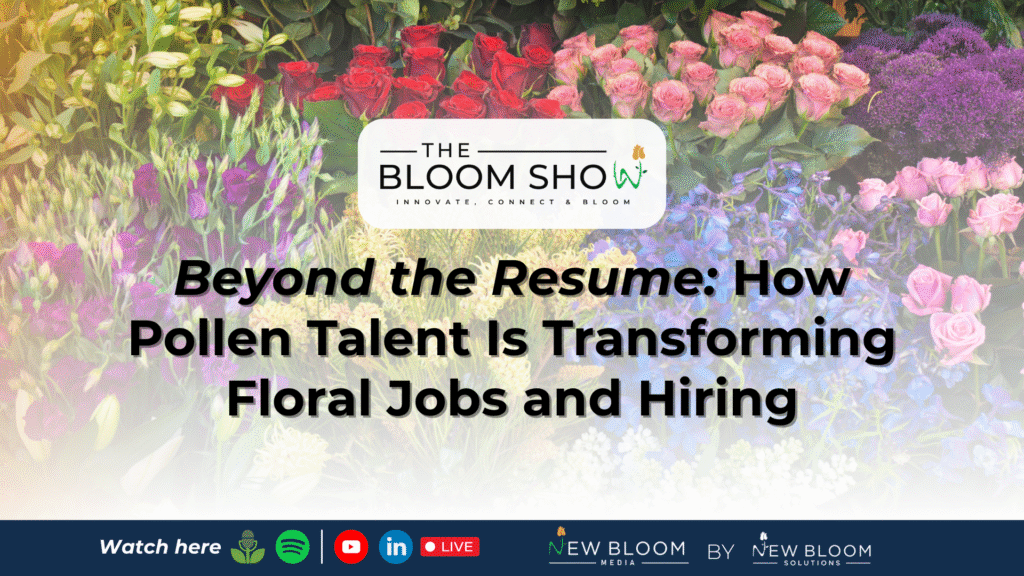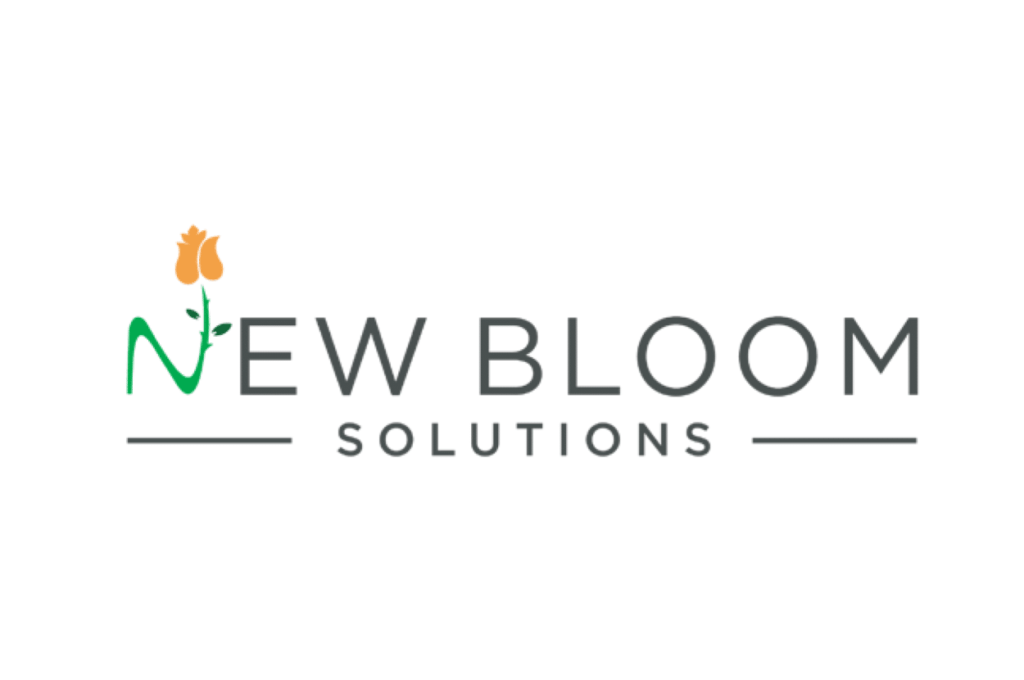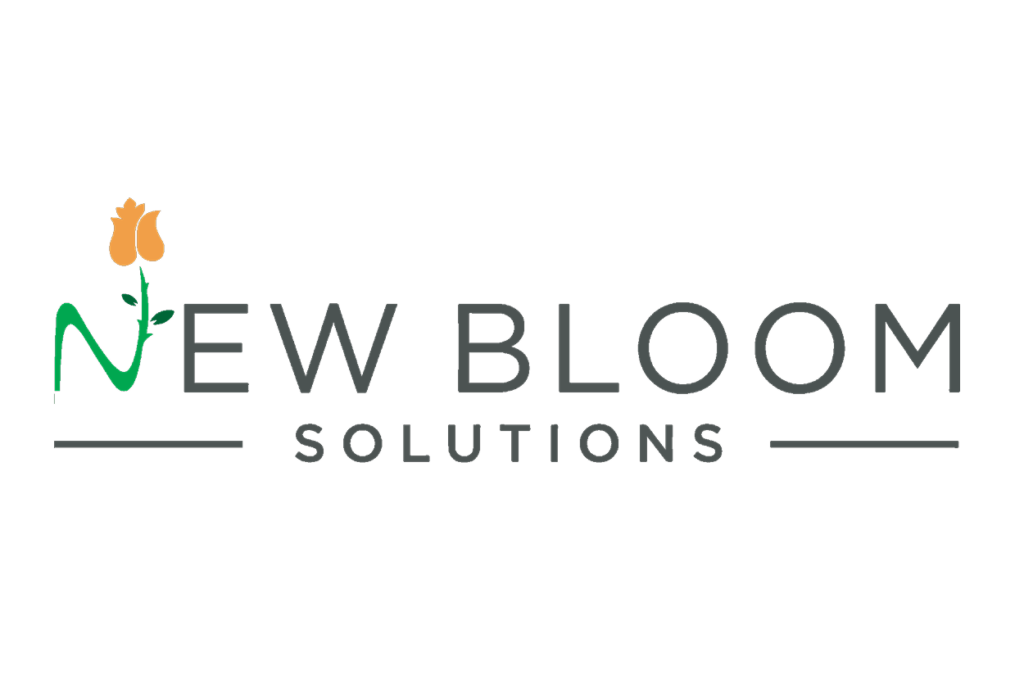In today’s fast-moving job market, hiring has become more complex—and more critical—than ever. On a recent Bloom Show Takeover, Sahid Nahim welcomed Pam Lopez, Head Recruiter at Pollen Talent, for a deep dive into how the floral industry can adapt its recruiting strategies for a new era.
With over 15 years of experience recruiting across the U.S., Ecuador, and Colombia, Pam has a rare vantage point: she understands the nuances of floral operations and how to evaluate the people behind the resumes.
Their conversation tackled some of the biggest questions employers face today:
- How do you spot top talent beyond a polished resume?
- What do Millennials and Gen Z want in a job—and what makes them stay?
- How can floral companies hire smarter, even in a high-tech, short-tenure world?
Let’s dig into the takeaways that matter most—from flower shop hiring to the deeper question of what a flower’s role means in today’s evolving workforce.
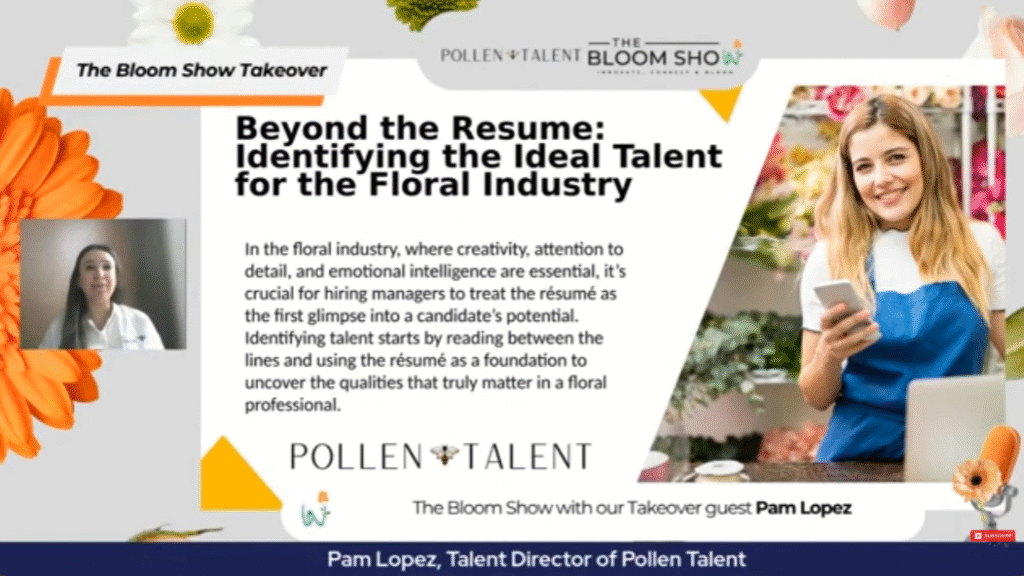
A Generational Shift That’s Reshaping Work
Pam began with a framework every hiring manager should understand: generational context. Pam explained that Millennials and Gen Z are now key players in the workforce, each bringing unique expectations and values to the hiring landscape.
Millennials, Pam noted, are purpose-driven and value growth, feedback, flexibility, and work-life balance. Many approach floral work not just as a product-based job, but as a way to connect emotionally with others.
Gen Z, on the other hand, is fully immersed in technology. They expect instant feedback, mobile workflows, an inclusive culture, and strong ethical values from their employers. They also bring a self-sufficient, entrepreneurial mindset—but they’re less likely to stick around long-term unless they see innovation, autonomy, and cultural alignment.
Pam emphasized that floral companies must evolve if they want to keep pace with current trends in the floral industry and remain competitive in the landscape of flower jobs and careers within the industry. “If they feel like the company, the team, and the project are going to be something good for them as well, they’re going to stay. But if they don’t see progress, they won’t engage.”
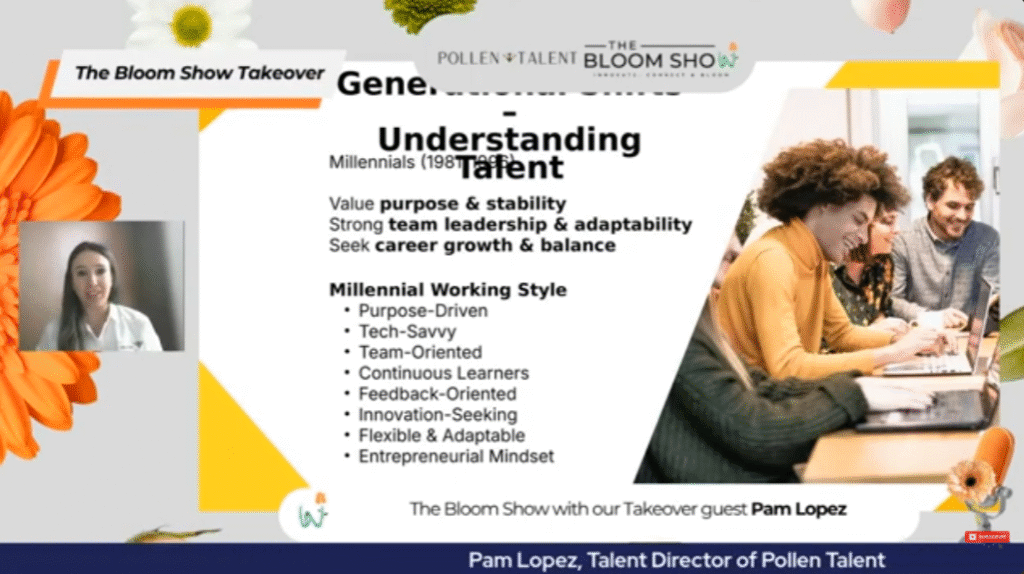
AI-Generated Resumes: Efficiency or Illusion?
One of the episode’s most eye-opening segments focused on artificial intelligence (AI) in hiring. Candidates are increasingly using tools like ChatGPT, Kickresume, and mock interview platforms to polish their applications. While this helps level the playing field, it also introduces a new challenge: how do you know what’s real?
Pam shared a personal anecdote about a Zoom interview where she could tell a candidate was reading AI-generated answers. While the answers were technically correct, they lacked the human nuance that comes with real experience. She adapted mid-interview to ask more personal, behavioral questions—and that’s when the candidate’s true self began to emerge.
Pam explained: “Now the candidates are using these tools to pass that barrier so it’s no longer effective just to to know the keywords it’s it’s important to understand that each industry each position has its language so to be able to speak the same language it’s important to understand if you will um fit to the position and fit to the company.”
For hiring managers, the message is clear: AI isn’t a threat—it’s a signal that recruiters must level up, too. It also raises the stakes when evaluating a resume and understanding whether it reflects real-world experience or just well-crafted prompts.
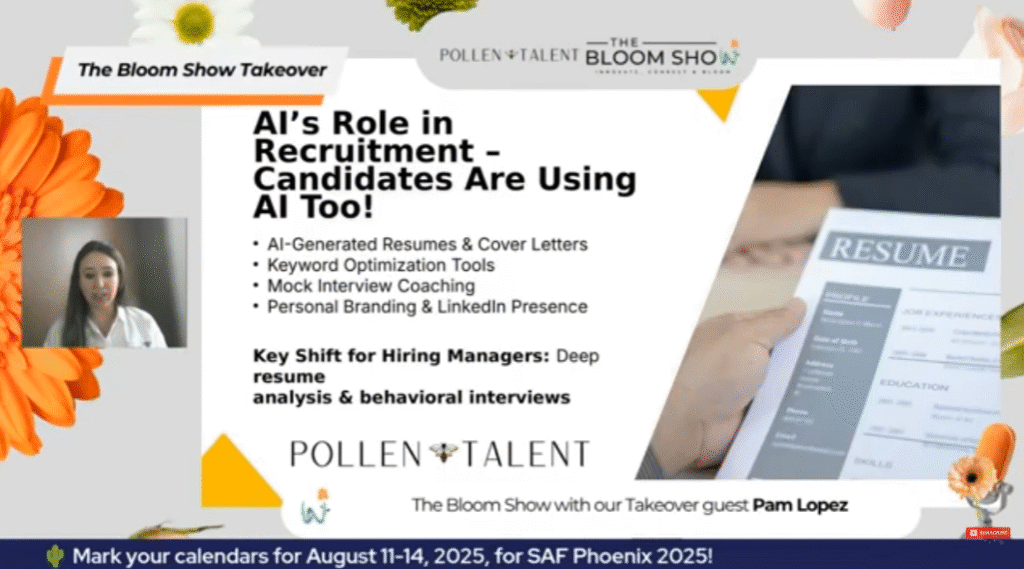
Rethinking Experience: The “Recycled” Candidates
A standout point in the discussion was Pam’s caution against the overuse of internal floral hires. While it may feel safer to hire someone already in your company, it can lead to stagnation.
Pam explained: “What I call the recycled candidates—okay, so it’s worth considering that hiring exclusively from the flower industry will result in professionals [who] will replicate the same approach, the same strategies they used in their previous companies. So they’re not going to be bringing something particularly new. They’re gonna replicate the same strategies that have been replicated in other positions.”
Instead, Pam encouraged floral companies to look to adjacent industries like retail, logistics, and food service, especially for roles in sales, operations, and marketing. These professionals bring proven systems, fresh leadership styles, and new perspectives that can modernize a floral business from the inside out, whether in flower shops, logistics, or flower design jobs.
The key? Invest in proper onboarding, mentoring, and floral-specific training. You can teach someone about flower care or industry regulations, but shifting someone’s working style to fit your company culture is much harder.
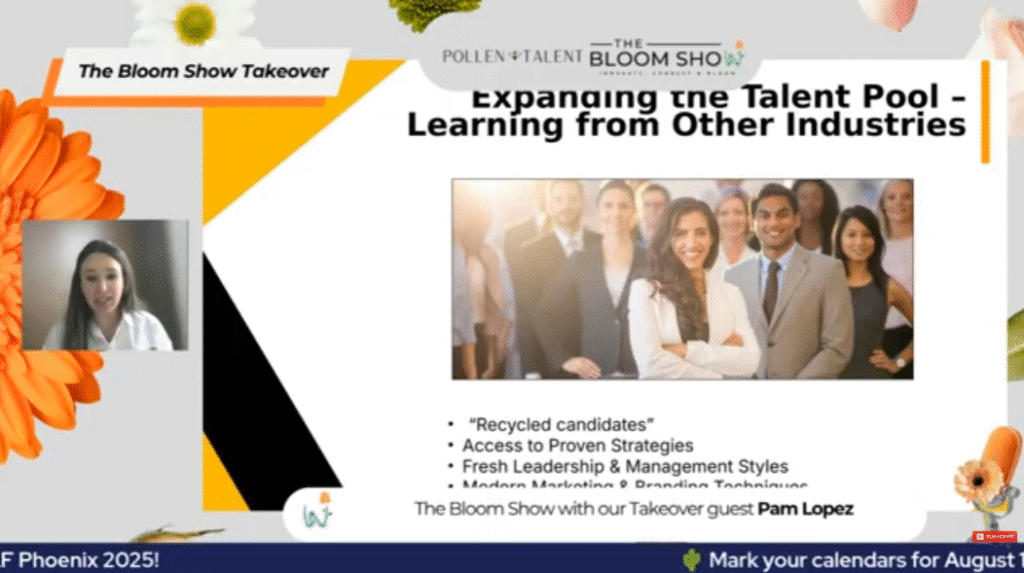
The Real Work Starts After the Hire
When Sahid jumped in to close the show, he shifted focus to retention—how do you keep good employees once you’ve hired them?
Pam and Sahid agreed that small, meaningful gestures matter. Sahid shared his philosophy of reinvesting in employees through surprise bonuses, educational incentives, and even vacation perks.
“Let’s say you have a $65,000 budget, but you get the employee for $60, save $2,000 to $2,500 of that in a year to give that employee different benefits and different bonuses that are unexpected.”
Whether it’s $50 or $500, what matters most is the intention behind the gesture—and the culture it helps build.
Pam emphasized that retention starts with listening—really listening.
Mentorship, clear growth paths, and understanding how a candidate communicates are just as critical as what’s on their resume. “Speaking the same language,” she noted, helps determine whether someone truly fits the role and culture.
For employers navigating pay scales, understanding the florist salary range can also shape more competitive offers. With younger generations prioritizing purpose, flexibility, and wellness, floral companies have a real opportunity to build workplaces where people want to stay.
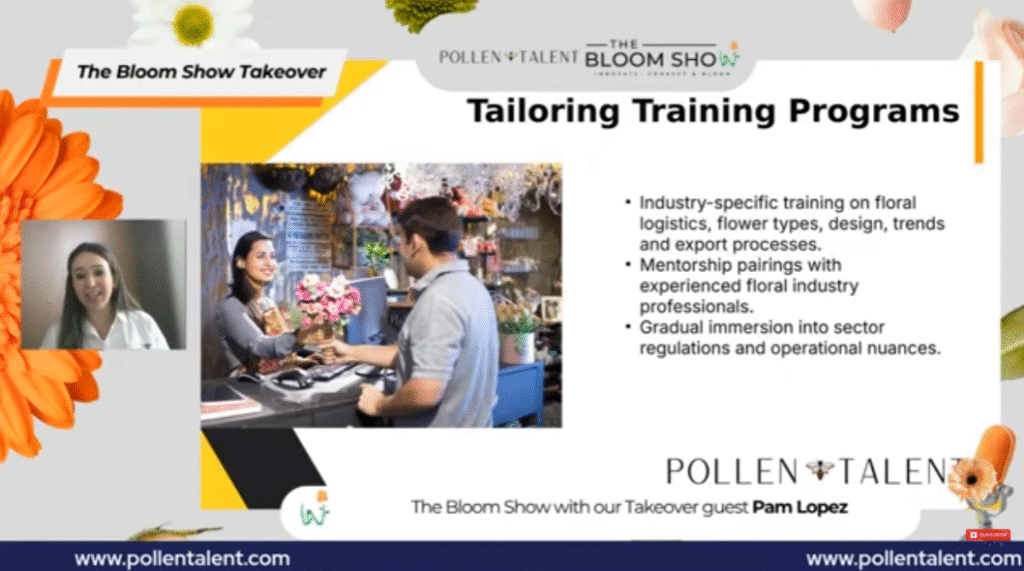
Final Thoughts: It’s Time to Rethink Floral Hiring
Pam closed with a powerful reminder: the future of floral hiring isn’t about resisting change—it’s about embracing it. That means welcoming technology without fear, understanding what new generations truly value, and being willing to look outside the usual resume formats—or even outside the floral industry entirely.
“But I invite the hiring recruiters not to see the AI-generated resumés with a negative connotation but to embrace this shift as an opportunity.”
Whether you’re a wholesaler, retailer, farm, or supplier, Pam’s advice applies: if you want a stronger team, start by evolving your mindset—and your methods.
Watch the full episode of The Bloom Show Takeover featuring Pam Lopez of Pollen Talent.

Also, don’t miss what’s next on The Bloom Show! Join us for upcoming episodes featuring:
- July 10: The Bloom Show: How Jim McCann Built 1-800-Flowers from 1 NYC Shop into a Global Brand
- July 22: The Bloom Show Takeover with Tim Huckabee of The Profitable Florist
Need help spotting the right talent?
Pollen Talent offers pre-vetted candidates who are passionate, prepared, and ready to grow with your company, whether you’re hiring for floral design jobs, flower shop jobs, or exploring new ways to structure your hiring process for floral hiring near you. Visit pollentalent.com to learn more—and claim your 2 complimentary anonymous resumes through the Vetted Candidates program.
Have a story to share or want to be featured in a future episode of The Bloom Show? Let’s connect—reach out to us today.

